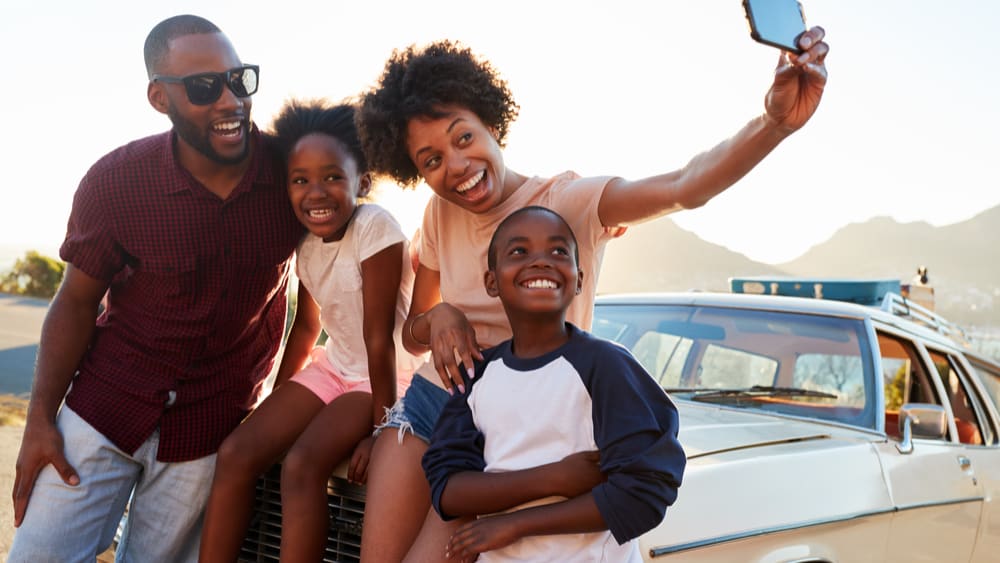[ad_1]
The State of “Things” in America
A new syndicated study from EBONY/QuestionProconsiders whether African-Americans today feel as hopeless as slaves heading to the New World during the transatlantic slave trade.
In Neil Gaiman’s television adaptation of American Gods, African deity Anansi (played by the underrated Orlando Jones) appears to a group of slaves heading to the New World on a Dutch ship. Dressed in a modern, flashy suit, he explains to the chained and terrified group that what lies ahead for them and their descendants are centuries of pain, exploitation, and oppression. There is no hope. The best the captured Africans can do is overthrow the Dutch slavers while on the open ocean, even if it will mean their deaths with the destruction of the ship.
Fast forward to 2019, here in the (alleged) real world. Is
hope as dead as it was in American Gods
during colonial times?
The EBONY/QuestionPro survey was conducted during the last
week of December 2018, with more than 700 adult African Americans across all
economic and education demographics, with a 50/50 gender split. Findings
include:
When it comes to economic issues, most African Americans (56
percent) feel that their household finances are the same as a year ago, while
42 percent believe their economic situation will improve in the next year (with
36 percent saying it will get worse and 22 percent saying it will remain the
same). As far as the overall American economy, almost half (48 percent) of
participants feel it will remain the same in 2019.
Then research points to African Americans being in the metaphoric hull of a Dutch slave ship.
It’s the Economy, Stupid
As the Trump era spreads its sails, African Americans are
far less enthusiastic about their present conditions. The results are mixed, at best.
Most respondents feel black communities are losing ground on
these issues:
- Addressing racial problems (58 percent)
- Providing access to quality healthcare (50
percent) - Narrowing the gap between rich and poor (57
percent) - Reducing poverty, hunger, and the homelessness
(51 percent) - Improving
immigration policies (56 percent)
The above statistics are staggering. Even if many African
Americans remain hopeful about the future of the nation, as indicated earlier, 62
percent believe the country is presently heading in the wrong direction. Interestingly,
the numbers drop considerably among survey participants who are less educated; for
example, only 25% of respondents without a college degree feel that the country
is heading in the right direction. However, more than 60% of respondents who
hold a college degree or above feel the country is heading in the wrong direction.
However, when it comes to overall race relations, the results might be somewhat surprising, especially when one considers the recent rise of white nationalism and populism across the country. Not much more than half (58 percent) of respondents stated that current race relations in the USA are bad/somewhat bad, with 22 percent claiming they are neither good or bad and 20 percent saying they are somewhat good/very good.
On the bright side, millennials and voters under the age of
40 are more optimistic about race relations. They represent the 20 percent who
view race relations positively, while only 3% of respondents above the age of 45
years old share that view. Perhaps Baby Boomers and Generation Xers are biased
or have a better frame of reference, having lived through a season of “good ole
days” when race relations were not as tense.
What might be another reason for this specific disparity? As
the adage goes: “it’s the economy, stupid.” According to the study, these are
the top three priorities for African Americans:
- Tax
cuts and tax reforms - Jobs
and the economy - Immigration
Race relations and civil rights came in fourth place. As another
adage goes, people vote their wallets and not their hearts, which could mean
mixed results in 2020 for Democrats as they depend on a strong black vote.
Out with the Old, In with the New
Without a doubt, these are turbulent times for African
Americans. Then again, many may ask, when hasn’t it been turbulent times for
African Americans since our ancestors arrived to
these shores?
When asked about New Year’s resolutions, African-Americans
seem to be highly committed about this topic. Nearly 50% of those surveyed
stated that they kept one or more resolutions in 2018. As far as personal improvement for 2019, these are the
top priorities from those surveyed:
- Eat better
- Save money
- Exercise more
- Focus more on self-care (e.g., getting more sleep, reducing stress)

Number four on the list might rise higher in 2019 if the economy and immigration falter, but here’s to a better diet!
Returning to the words of Jackson, the slaves never
surrendered and never went “there” (the New World), but they never had a chance to realize they were qualified and
could hold out for the right opportunities.
The lesson is simple but the study indicates that we must
stay alert but keep hope alive…even if it seems like these are disheartened
times riding on what appears to be a ship of fools.
“Keep Hope Alive!”
At the 1988 Democratic Convention, one of the candidates
provided the following quotes:
“You must not surrender. You may or may not get there, but just know that you’re qualified and hold on and
hold out. We must never surrender. America will get better and better. Keep
hope alive!”
Today, according to the EBONY survey, a considerable number
of African Americans agree with that statement – 42 percent of those who
participated in the survey stated that they are optimistic when it comes to the
future of the United States. Only 25 percent are pessimistic, with 34 percent
being neither pessimistic nor optimistic. Moreover, the survey revealed that a
robust 69 percent of respondents indicated that they are somewhat
satisfied/very satisfied with their overall quality of life. Hope is alive and
well.
That’s about it when it comes to a positive outlook,
however, although there is an underlying stoic attitude.
About the Author:
Rudly Raphael is President of Research and Insight for QuestionPro. He has more than 15 years of experience in the market research industry, implementing primary and secondary research for a number of high profile clients. He’s a frequent blogger and has published a number of articles on various topics. Download the entire survey “2018 – A year in review for African Americans and predictions for 2019”.
What is EBONY Attitudes?
Periodically, EBONY hosts online surveys to measure attitudes about contemporary topics affecting African-Americans. When you sign up, we will only send you invitations to participate in our surveys as well as survey results. Each survey will take fewer than ten minutes to complete. Thanks for signing up and being a part of our research, sign up now.
[ad_2]
Source link

